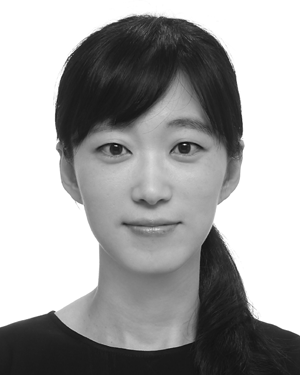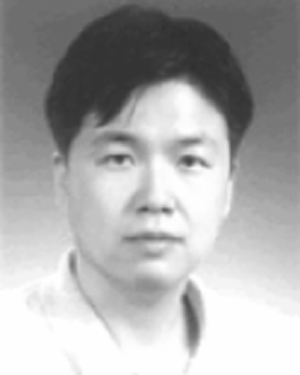Abstract:
A high-profile H.264 intra-frame encoder is suitable for low-cost and low-power applications and capable of providing enhanced compression efficiency. The high-profile is...Show MoreMetadata
Abstract:
A high-profile H.264 intra-frame encoder is suitable for low-cost and low-power applications and capable of providing enhanced compression efficiency. The high-profile is targeting the high-resolution videos. Thus, the encoding speed should be faster than or comparable to the baseline-profile. In previous work related to a hardware-based baseline-profile intra-frame encoder, a speed-up is achieved by the early termination of the intra modes and by an increase in the rate of hardware utilization only under one of the serialized and parallel schedules. This paper proposes a novel pipeline schedule for a hardware-based high-profile intra-prediction scheme in which the 8 × 8 prediction is performed in Stage 1 and 4 × 4, 16 ×16 and chroma predictions are executed during Stage 2. The processing time of Stage 2 is efficiently accelerated based on the result of the 8 × 8 prediction in Stage 1. According to the distribution of each mode, the schedule is adaptively selected between parallel and pipeline schedules. To increase the hardware utilization of the 8 × 8 prediction, the order of prediction modes and the inverse vertical transform is adaptively adjusted. In addition, early termination of the prediction modes is employed for a fast 8 × 8 prediction. The proposed 8 × 8 intra-prediction is implemented and verified as an entire intra-frame encoder. Experimental results show that the average number of cycles necessary to process one MB for videos with resolutions of 1920 ×1080 and 3840 × 2160 are only 269 and 253 cycles, respectively. Compared to JM13.2, the bitrate is increased by 1.13% on average with a small PSNR degradation of 0.06 dB. The difference in the rate-distortion performance between the proposed high-profile intra-prediction scheme and JM 13.2 is not significant, whereas the achieved speed-up due to the proposed schemes is considerable compared to the conventional hardware-based intra-prediction encoders.
Published in: IEEE Transactions on Multimedia ( Volume: 16, Issue: 4, June 2014)

Department of Information and Communication Engineering, Inha University, Incheon, Korea
Chae Eun Rhee received the B.S., M.S. and Ph.D. degrees in Electrical Engineering and Computer Science from Seoul National University, Seoul, Korea, in 2000, 2002 and 2011, respectively. From 2002 to 2005, she was with the Digital TV Development Group, Samsung Electronics Company Ltd., Suwon City, Korea, as an Engineer, where she was involved in bus architecture and MPEG decoder development. In 2013, she joined the Depart...Show More
Chae Eun Rhee received the B.S., M.S. and Ph.D. degrees in Electrical Engineering and Computer Science from Seoul National University, Seoul, Korea, in 2000, 2002 and 2011, respectively. From 2002 to 2005, she was with the Digital TV Development Group, Samsung Electronics Company Ltd., Suwon City, Korea, as an Engineer, where she was involved in bus architecture and MPEG decoder development. In 2013, she joined the Depart...View more

Department of Electrical Engineering, Inter-university Semiconductor Research Center, Seoul National University, Seoul, Korea
Tae Sung Kim received the B.S degree in electrical electronic engineering from Pusan National University, Pusan, Korea, in 2010 and the M.S. degree in electrical and computer engineering from Seoul National University, Seoul, Korea, in 2013. He is working toward Ph.D. degree in electrical and computer engineering of Seoul National University. His research interests include the algorithm and architecture of H.264/AVC and H...Show More
Tae Sung Kim received the B.S degree in electrical electronic engineering from Pusan National University, Pusan, Korea, in 2010 and the M.S. degree in electrical and computer engineering from Seoul National University, Seoul, Korea, in 2013. He is working toward Ph.D. degree in electrical and computer engineering of Seoul National University. His research interests include the algorithm and architecture of H.264/AVC and H...View more

Department of Electrical Engineering, Inter-university Semiconductor Research Center, Seoul National University, Seoul, Korea
Hyuk-Jae Lee received the B.S. and M.S. degrees in Electronics Engineering from Seoul National University, Korea, in 1987 and 1989, respectively, and the Ph.D. degree in Electrical and Computer Engineering from Purdue University at West Lafayette, Indiana, in 1996. From 1998 to 2001, he worked at the Server and Workstation Chipset Division of Intel Corporation in Hillsboro, Oregon as a senior component design engineer. Fr...Show More
Hyuk-Jae Lee received the B.S. and M.S. degrees in Electronics Engineering from Seoul National University, Korea, in 1987 and 1989, respectively, and the Ph.D. degree in Electrical and Computer Engineering from Purdue University at West Lafayette, Indiana, in 1996. From 1998 to 2001, he worked at the Server and Workstation Chipset Division of Intel Corporation in Hillsboro, Oregon as a senior component design engineer. Fr...View more

Department of Information and Communication Engineering, Inha University, Incheon, Korea
Chae Eun Rhee received the B.S., M.S. and Ph.D. degrees in Electrical Engineering and Computer Science from Seoul National University, Seoul, Korea, in 2000, 2002 and 2011, respectively. From 2002 to 2005, she was with the Digital TV Development Group, Samsung Electronics Company Ltd., Suwon City, Korea, as an Engineer, where she was involved in bus architecture and MPEG decoder development. In 2013, she joined the Department of Information and Communication Engineering at Inha University, Korea, where she is currently working as an assistant professor. Her research interests include algorithm and architecture design of video coding for HEVC and H.264/AVC and configurable video coding for real time systems.
Chae Eun Rhee received the B.S., M.S. and Ph.D. degrees in Electrical Engineering and Computer Science from Seoul National University, Seoul, Korea, in 2000, 2002 and 2011, respectively. From 2002 to 2005, she was with the Digital TV Development Group, Samsung Electronics Company Ltd., Suwon City, Korea, as an Engineer, where she was involved in bus architecture and MPEG decoder development. In 2013, she joined the Department of Information and Communication Engineering at Inha University, Korea, where she is currently working as an assistant professor. Her research interests include algorithm and architecture design of video coding for HEVC and H.264/AVC and configurable video coding for real time systems.View more

Department of Electrical Engineering, Inter-university Semiconductor Research Center, Seoul National University, Seoul, Korea
Tae Sung Kim received the B.S degree in electrical electronic engineering from Pusan National University, Pusan, Korea, in 2010 and the M.S. degree in electrical and computer engineering from Seoul National University, Seoul, Korea, in 2013. He is working toward Ph.D. degree in electrical and computer engineering of Seoul National University. His research interests include the algorithm and architecture of H.264/AVC and HEVC and video coding systems.
Tae Sung Kim received the B.S degree in electrical electronic engineering from Pusan National University, Pusan, Korea, in 2010 and the M.S. degree in electrical and computer engineering from Seoul National University, Seoul, Korea, in 2013. He is working toward Ph.D. degree in electrical and computer engineering of Seoul National University. His research interests include the algorithm and architecture of H.264/AVC and HEVC and video coding systems.View more

Department of Electrical Engineering, Inter-university Semiconductor Research Center, Seoul National University, Seoul, Korea
Hyuk-Jae Lee received the B.S. and M.S. degrees in Electronics Engineering from Seoul National University, Korea, in 1987 and 1989, respectively, and the Ph.D. degree in Electrical and Computer Engineering from Purdue University at West Lafayette, Indiana, in 1996. From 1998 to 2001, he worked at the Server and Workstation Chipset Division of Intel Corporation in Hillsboro, Oregon as a senior component design engineer. From 1996 to 1998, he was on the faculty of the Department of Computer Science of Louisiana Tech University at Ruston, Louisiana. In 2001, he joined the School of Electrical Engineering and Computer Science at Seoul National University, Korea, where he is currently working as a Professor. He is a founder of Mamurian Design, Inc., a fabless SoC design house for multimedia applications. His research interests are in the areas of computer architecture and SoC design for multimedia applications.
Hyuk-Jae Lee received the B.S. and M.S. degrees in Electronics Engineering from Seoul National University, Korea, in 1987 and 1989, respectively, and the Ph.D. degree in Electrical and Computer Engineering from Purdue University at West Lafayette, Indiana, in 1996. From 1998 to 2001, he worked at the Server and Workstation Chipset Division of Intel Corporation in Hillsboro, Oregon as a senior component design engineer. From 1996 to 1998, he was on the faculty of the Department of Computer Science of Louisiana Tech University at Ruston, Louisiana. In 2001, he joined the School of Electrical Engineering and Computer Science at Seoul National University, Korea, where he is currently working as a Professor. He is a founder of Mamurian Design, Inc., a fabless SoC design house for multimedia applications. His research interests are in the areas of computer architecture and SoC design for multimedia applications.View more


